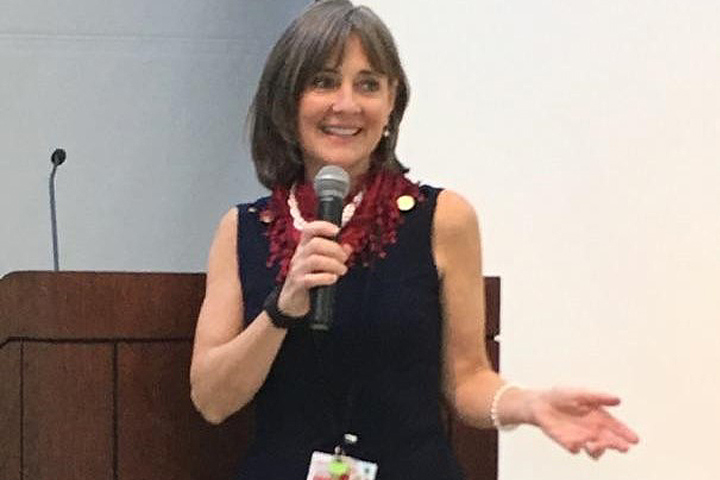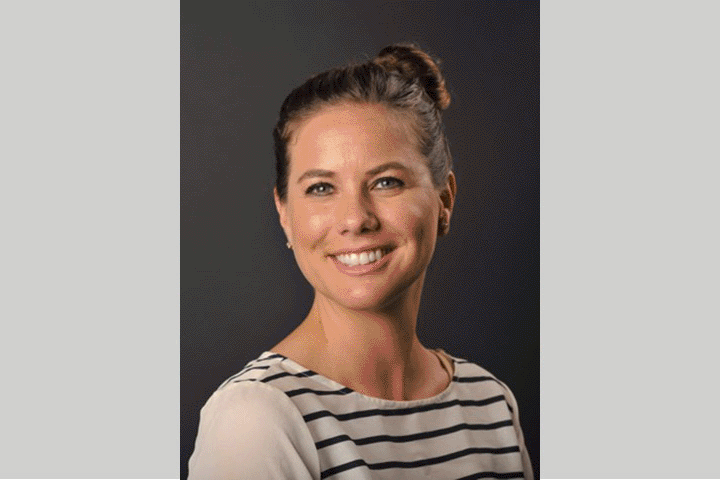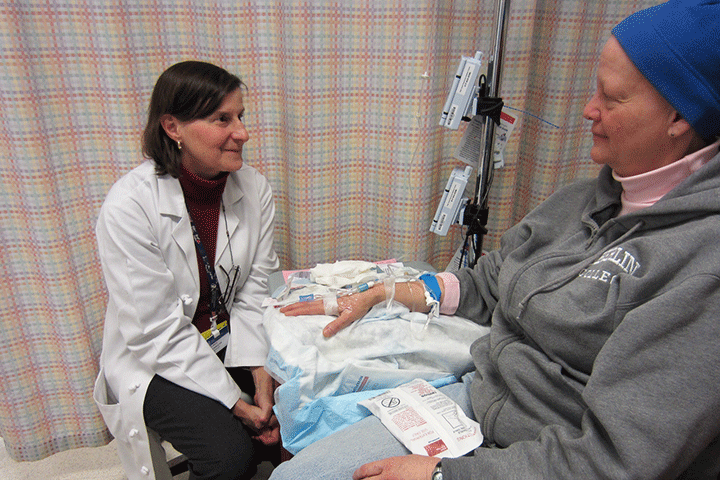Support Groups Provide an Emotional Lift

A pancreatic cancer diagnosis can send you and your loved ones into a tailspin.
The daunting statistics and celebrity deaths have given this cancer a particularly grim reputation. Because of this, you may want to talk to other people who face the same issues as you. One of the best avenues of help is through support groups for pancreatic cancer patients.
Finding support when coping with pancreatic cancer can be a challenge, since the cancer is relatively rare. But if you put yourself out there, help is available. From online groups and live chats to in-person pancreatic cancer support group meetings, the closeness that develops from patients coming together may be unparalleled.
“The people in our community become like family members,” explains Nicole Smith, founder of Bella Lisa Pancreatic Cancer Foundation and an administrator of the Pancreatic Cancer: NEGU (Never Ever Give Up) Facebook group, founded by pancreatic cancer patient Barry Reiter. “In fact, many of our participants say group members have helped them more than their family members.”
How Support Groups Can Help
There are advantages to sharing your pancreatic cancer journey with others who are navigating similar waters, whether you are a patient or a caregiver.
You find your people. The primary reason to join a support group is to share thoughts and concerns with people who have walked in your shoes. While you may feel like your friends and family are supportive, unless they are also coping with a pancreatic cancer diagnosis they may not be able to grasp what you’re going through.
“With a support group, people who are initially strangers become very attached to each other,” says E. Angela Heller, LMSW, Oncology Social Worker at New York Presbyterian Hospital at Columbia University Medical Center. “Things they can’t say to their spouse, loved ones or friends, they can put at the center of the table and other members in the group can say, ‘I’ve been there, too.’” Heller leads the Pancreas Cancer Support Group at Columbia.
You tap in to new resources. The best way to learn how to face a tough diagnosis is to arm yourself with resources. Members of a support group can not only clue you in about what to expect during and after treatment, they can also share coping strategies that worked for them.
Heller’s group, for example, hosts guest speakers so participants can learn about the latest treatment options from the brightest minds in pancreatic cancer research. Members also share insight about everything from free and low-cost massage services to exercise programs designed for people undergoing cancer treatment.
You may live longer. Studies show that participating in a support group is good for you. Dating back to 1989, researchers discovered that women with metastatic breast cancer who participated in a weekly group for 12 months had an 18-month survival advantage over those who navigated their cancer journey without that support. In fact, patients who had the poorest prognosis seemed to benefit the most.
“Humans cope better when they’re in communities,” says Heller, whose group consists of up to 18 pancreatic cancer patients, including six-year and four-year survivors. “The group not only helps reduce anxiety and depression, it also gives patients a sense of purpose because they’re able to help someone else.”
The Intangible Value of Groups
Recent studies suggest online programs may be equally healing. A 2015 review of the literature published in Critical Reviews in Oncology/Hematology reported that internet-based support programs not only improved quality of life for patients, but also improved outcomes. For people who don’t feel comfortable discussing emotions in front of a group of strangers—or those who don’t have access to transportation or an in-person group—online resources can be a lifeline. And they’re available around the clock. “There’s always someone available to answer your questions,” says Smith.
Despite their perks, support groups are not a panacea for every pancreatic cancer patient. “For some patients, it’s too distressing to hear other peoples’ stories—and we do lose people to the disease,” says Heller. But for a huge subset of patients, that loss is more tolerable when you have the support of the community.
Support groups are not just for patients. Smith joined Pancreatic Cancer: NEGU as a caregiver. “When my mom was diagnosed, I started googling pancreatic cancer and support networks,” says Smith, who credits the group for helping her find her way through her grief after her mother passed in 2015. “I wouldn’t be the person I am today without this community. The members here have become friends for life.”
How to Find Pancreatic Cancer Support Groups
Searching for a supportive network to help you cope with your diagnosis? There are both in-person and internet-based options for patients and caregivers.
Let’s Win and the Lustgarten Foundation sponsor Pancreatic Cancer Connections, an online support group through Inspire. Facebook hosts other pancreatic cancer support groups in addition to Pancreatic Cancer: NEGU, including the Whipple Warriors Caregiver Support Group and groups sponsored by Pancreatic Cancer Action Network (PanCAN). The Cancer Forums has one specifically for pancreatic cancer.
The facility where you are getting treatment may also have programs similar to the group Heller hosts at Columbia. PanCAN, the American Cancer Society, and CancerCare also have resources to help you find in-person groups near you.





